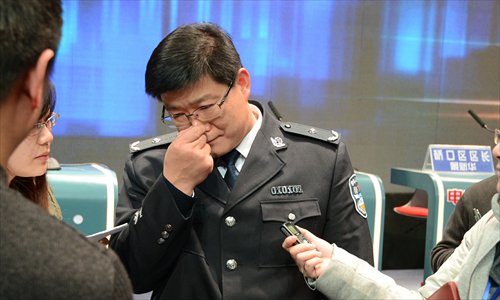City leaders forced to live up to promises on live television

Twenty-nine officials in Wuhan, Hubei Province, became participants in a hot-seat reality television show this week in which they faced questioning and criticisms from a panel of experts and members of a selected audience.
The locally broadcast program focuses on 10 of the city's most pressing problems, which the government had already promised to tackle.
"Our program wants to see whether the officials and their departments have kept their promises to the public. We receive almost 2,000 phone calls every day reporting problems and issues Wuhan citizens care about and expect their local government to solve," said the man in charge of the program's hotline, surnamed Huang.
The show invited 50 audience members including deputies, representatives and stakeholders to the studio to question the officials directly.
This program is a follow-up to a five-episode live program involving the same officials which was broadcast by Wuhan Television in June and July.
The issues ranged from the city's economic development to low income housing, traffic congestion and the environment. The officials were compelled to participate in the show by their superiors.
The audience of 50 was selected by the discipline department of the local Party committee.
The officials who were selected as participants were only told generally what questions they might be asked. They did not know details of prepared video reports or the questions from the audience, Huang said.
The city's traffic chief was embarrassed by an investigative video report broadcast on Wednesday's program as it showed he had failed to fix the chaotic congestion at the city's long-distance bus station as he had promised during an earlier program.
"Our show is very popular among citizens and some problems raised on the show do get solved," Huang said.
The program's concept has been copied in other locales and Hangzhou Television has already started a similar show.
"These kinds of programs will monitor local governments to ensure they keep their promise to the public and boost governance. But monitoring governance through a television show is definitely not the final solution," said Zhang Ming, a professor of political science at the Renmin University of China.
Since the 18th Party congress governments have been urged to make a transition from managing government to becoming more responsive to the needs of the people, said Zhang. "We should have candidates for the People's Congress who we really want to vote for," he added. "By empowering representatives, government can become more service orientated," he said.